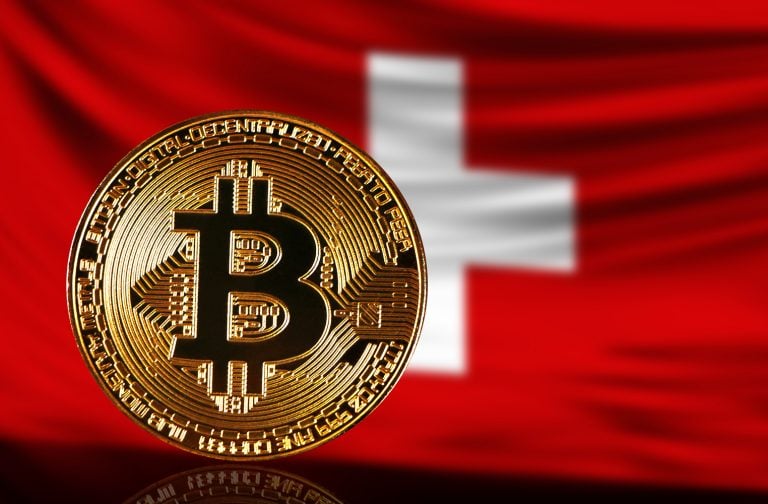
2019-7-4 14:20 |
A recent letter from the U.S. House of Representatives to social media giant Facebook has crypto users speculating feverishly. The implications of the letter, and Calibra CEO David Marcus’ recent response, will inform the future of money not only in America, but worldwide. House Chairwoman Maxine Waters and cohorts took aim this week not only at Facebook’s Libra coin, but also at the banking practices of Switzerland where the Libra Association is located. Some say Facebook will kill the U.S. dollar. Others say Libra will fail. Still others suspect higher level geopolitical engineering behind the scenes. Regardless, what is at stake is huge, and Switzerland is onto something that always engenders freedom: decentralization.
Also read: Side Effects of Economic Growth: Is Snowden Right to Say Bitcoiners Shouldn’t Be Bankers?
An Ominous MessageFailure to cease implementation [of Libra] … risks a new Swiss-based financial system that is too big to fail.
The United States government has issued a letter to social media giant Facebook, asking it to put a moratorium on its upcoming cryptocurrency and wallet, Libra and Calibra, respectively. Dated July 2, 2019, the letter from the House Committee on Financial Services to Mark Zuckerberg, Sheryl Sandberg (COO), and David Marcus (Calibra CEO), states in part:
It appears that these products may lend themselves to an entirely new global financial system that is based out of Switzerland and intended to rival U.S. monetary policy and the dollar. This raises serious privacy, trading, national security, and monetary policy concerns for … the broader global economy.
It looks like U.S. government financial interests have something against competition, and in particular competition from a social media company working on a project in Switzerland. If the whole thing seems a little strange, don’t worry, you’re not alone. Donald Trump is best buddies with Kim Jong Un, Iran is mining bitcoins in mosques, and quantum physicists are telling us this is all a simulation. But sim or not, something remarkable is definitely afoot.
Who Is the Libra Association?With Visa, Mastercard, Paypal, Uber, Lyft, Spotify and 21 other companies already onboard, the Libra Association is no small beans. Such players being involved constitutes a multi-billion-dollar corporate juggernaut. The seemingly alarmed tone of the letter from Congress raises some questions.
Huge entities in the financial world do communicate with one another. Companies like Visa, Mastercard and Paypal are very much embedded in centralized, regulatory banking and political lobbying. It’s all a part of the game for any major business in the field. But things might not be so cut and dried, after all. The release of this ominous House warning hints at an element of decentralized chaos having crept into the system.
Switzerland: A Threat to Global Financial Security?Switzerland has arguably been the country that has most helped hold together global financial security over recent centuries. In a world of statist violence and coercion-based economic systems—which does also include the Swiss government—this isn’t saying much, but it’s noteworthy nonetheless.
The Libra Association is based in Geneva, and one of the most interesting aspects of the creepy message from Congress is the fact that narrowed focus is given specifically to Switzerland. Focus on yet another specific country as the new enemy to the dollar. Libra is a potential threat to world security and is “intended to rival U.S. monetary policy and the dollar.” It is a threat to “global financial security.”
But wait a second. Isn’t the U.S. government the group that has consistently, persistently, and systematically been a threat to the dollar? To itself? Isn’t it the U.S. military machine that has systematically plunged economy after foreign economy into the abyss of wartime destruction?
Departure from the gold standard, constantly inflating the currency to finance endless war and creating massive credit bubbles all takes its toll. It seems like the Facebook crew should perhaps be writing a letter to the Feds telling them to look in the mirror and to stop threatening “global financial stability” themselves.
How the US Handles ‘Threats’The relatively recent U.S. military intervention in Libya and Iraq are illustrative of something critical. Current saber-rattling politics in the media about Iran are as well. These events all have a strange commonality. They involve nations or political leaders who have already, or are currently attempting to, abandon the U.S. dollar as a world reserve currency.
Libyan leader Muammar Gaddafi was planning an abandonment of the USD in favor of the gold-backed Dinar before being killed by U.S. and NATO-backed forces in 2011. Iraq announced it would dump the dollar in 2000. Soon after, that same country would be ravished by a unilaterally launched and seemingly endless U.S. military rampage in the desert. Just last month, Iran’s Foreign Minister, Mohammad Javad Zarif, called for countries to stop using the USD as well:
America’s power rests on the dollar; a great part of America’s economic power will go away if countries eliminate the dollar from their economic systems.
Calling this all mere coincidence seems naive at best.
The Swiss parliament building in Bern Decentralized Swiss GovernmentOfficially, Switzerland is a semi-direct democratic federal republic. This is a long, tedious string of words which could be more simply translated as: more decentralized than many other governments. In Switzerland, a Federal Assembly, the top legislative body, is divided into two groups called the National Council and Council of States (cantons). Another body called the Federal Council holds executive power and is composed of seven members, sharing power.
What’s really intriguing is that Switzerland’s constitution can be changed via referendum, and that any single citizen can challenge new legislation just by gathering signatures. 50,000, to be exact. If this amount of signatures is reached, a vote is scheduled and acceptance or rejection of a particular law is decided. In other words, though still a very centralized and coercion-based system, the Swiss model is more direct, open, and decentralized than comparable others, particularly those in the U.S.
The Cutting Edge: Watches, Particle Accelerators and Swiss BanksThis relative governmental decentralization may be the reason Geneva, and Switzerland as a whole, are such hubs for innovation, scientific progress, and quality craftsmanship. Not to mention a banking legacy unparalleled by that of any other nation. This high-caliber hub of world business and finance has been enough to bring both the Swiss state—and Facebook’s Libra project—under fire from U.S. geopolitical economic interests.
Back in March 2016, Barack Obama gave a speech at the South by Southwest (SXSW) festival where he mentioned problems he saw regarding emergent cryptographic technologies:
Because if, in fact, you can’t crack that at all, government can’t get in, then everybody is walking around with a Swiss Bank account in their pocket.
The sentiment of many in the crypto space at the time was “Yeah, that’s the whole point!” It’s interesting that of all the banks in the world, the ones now coming under fire from Congress are some of the most private and secure. This really seems to irritate politicians and lawmakers.
A Brief History of Banking in the AlpsBanking is emblematic of Switzerland. Since the early 1700s, Swiss banks have stashed gold in underground bunkers for wealthy foreign powers and established business interests alike. Using their officially declared neutrality, Switzerland’s banks have supposedly protected everything from Jewish assets to Nazi gold.
As competition with large banks in London, Paris, and Berlin was virtually impossible in the early 20th century, Swiss banks began to advertise themselves as tax havens for anyone who needed privacy. In fact, this has been a conscious, strategic move according to some. Swiss historian Sébastien Guex notes:
This is what the Swiss bourgeoisie are thinking: ‘That’s our future. We will play on the contradictions between the European powers and, protected by the shield of our neutrality, our arm will be industry and finance.’
Privacy Under AttackLike Bitcoin and Libra, Swiss banks have come under attack by regulators and foreign interests repeatedly throughout history. Even during World War II, when many thought privacy ought to be sacrificed for international security, Swiss banking institutions kept their lips sealed. It’s not only an official criminal offense to leak client information in Switzerland, it’s something of a legendary—if sometimes mythologized—unspoken oath.
Obama’s comments about cryptography hearken back to an important reality. Namely, that privacy in Swiss banking has been, and continues to be, utilized for both ethical and unethical reasons. Just like bitcoin. Just like any other tool.
This does not however, justify ripping away the privacy of any individual just because they could potentially do something unsavory with said tool. Unlike London, Switzerland does not have an age requirement to purchase a butter knife. Unless the U.S. is to end up in a similarly infantile state, more privacy and decentralization of governance will be necessary.
Decentralization: A Model for Progress EverywhereU.S. interests and quasi-private businesses in Geneva are locking horns. What happens next is anybody’s guess, and the global market seems to be watching and waiting as well. Grabbing some popcorn, sitting back, and watching two behemoth—probably both equally sociopathic—entities duke it out on the world stage is going to be fun. Especially for those in crypto and libertarian circles. Fun, but simultaneously very unsettling.
Switzerland, for all its good, is no harmless kitten either. Also in Switzerland there is a government, which is a violent, centralized mob rule, blood money machine – like any other. Aiding Nazis, propagandizing themselves as heroes by also ostensibly aiding persecuted Jews, and presenting an image of peaceful neutrality the whole time is no real reason to brag. But that’s not what matters.
What matters here is the proof of concept. Decentralization works, regardless of the intent of this or that market actor, government, or government body. Regardless of the nature of the user of the tool. Privacy works. Innovation is spurred, money retains greater soundness and value, and quality of life is improved.
Educating the Next Generation of Crypto LoversThere is an extremely valuable takeaway from all of this. If relative decentralization of power differentials can result in such great banks, watches, cyber technology, and progress for Switzerland, maybe full decentralization and full freedom could do even more.
Would it be like that recent Citystate game video uploaded to Youtube? Where the user sets all state regulation and taxes to virtually zero, and a mega-metropolis laissez-faire wet dream emerges? It may be that greater decentralization could open the door to innovation and progress so out of this world, it would be hard to even conceive, at least now, in this current paradigm.
The Economic Simulation ContinuesSince the release of the controversial government letter, Calibra CEO David Marcus has issued a note on Facebook, apparently in response, saying:
This is why we believe in and are committed to a collaborative process with regulators, central banks, and lawmakers … At the core, we believe that a network that helps move more cash transactions — where a lot of illicit activities happen — to a digital network that features regulated on and off ramps with proper know-your-customer (KYC) practices, combined with the ability for law enforcement and regulators to conduct their own analysis of on-chain activity, will be a big opportunity to increase the efficacy of financial crimes monitoring and enforcement.
More surveillance. More control. Less privacy. This doesn’t sound like anything the U.S. federal government should have a problem with. The cat and mouse game being witnessed with Facebook and the U.S. government is interesting in part for this reason. As with the President of the United States of America himself actually Tweeting “BORING!” during the recent Democratic debates, things just seem to get weirder and weirder.
The Move Toward a Cashless SocietyIt could be that there is a sort of predictive programming playing out here. Potentially for the introduction of a worldwide, cashless reality. It’s something that’s been talked about by elite banking interests for a long time now, and Hegelian dialectical strategies have often been used to achieve various political ends. Take the Gulf of Tonkin incident and Vietnam, for example. Or the tragedy of 9/11 being used to justify military intervention in a country totally unrelated to the incident, Iraq.
Maybe a traditional thesis, antithesis, and synthesis has been created. Zuckerberg challenges Fed (thesis). Fed pushes back (antithesis). Fed and Zuckerberg then work together and make a happy compromise (synthesis). To explore this fully now, however, would take things too far afield.
Perhaps sufficient enough is this 1998 excerpt from The Economist, a magazine owned in large part by the mega-powerful, centuries-old Rothschild banking dynasty:
So here is an idea: global currency union. Let nobody call it boringly feasible, or politically expedient. Yet, like all the best unthinkable ideas, it has more going for it than you might think—in principle, at least. The idea is not new. Richard Cooper of Harvard University proposed a single world currency in Foreign Affairs in 1984, and he was not the first to think of it. It seemed an outlandish idea, and still does. But much has happened lately to make it worth a moment’s thought.
Crypto: Solid as Gold, Liquid as WaterIt’s clear that digital assets are the direction technology and society are moving. To resist the trend would be nearly impossible. And where digital assets are the next level future of finance, people want to make sure the ones they hold are secure, private, and sound. Like gold stacked deep underground at the foothills of the Swiss Alps. Only now, transferable and spendable with the touch of a small screen.
Whether Maxine Waters and her colleagues are really that up in arms about Facebook’s big moves, or whether the Swiss government really did attempt to help persecuted Jews out of kindness doesn’t matter. None of this matters. It doesn’t even matter what the quantum physicists say about the very nature of reality itself. It’s all talk.
The reason none of these things matter is simple: Because angry Waters or not, kindhearted bankers or not, simulation or not, privacy and decentralization are the verified, use case-tested means by which sound money and a better, more “Swiss” quality of life can be built right here, right now.
What’s your view on the conflict between Facebook and U.S. financial interests? Let us know in the comments section below.
OP-ed disclaimer: This is an Op-ed article. The opinions expressed in this article are the author’s own. Bitcoin.com is not responsible for or liable for any content, accuracy or quality within the Op-ed article. Readers should do their own due diligence before taking any actions related to the content. Bitcoin.com is not responsible, directly or indirectly, for any damage or loss caused or alleged to be caused by or in connection with the use of or reliance on any information in this Op-ed article.
Images courtesy of Shutterstock, Twitter
Did you know you can verify any unconfirmed Bitcoin transaction with our Bitcoin Block Explorer tool? Simply complete a Bitcoin address search to view it on the blockchain. Plus, visit our Bitcoin Charts to see what’s happening in the industry.
The post The Swiss Are Onto Something: Facebook, Libra and the Case for Decentralization appeared first on Bitcoin News.
origin »Bitcoin price in Telegram @btc_price_every_hour
Ceocoin (CEO) íà Currencies.ru
|
|
















